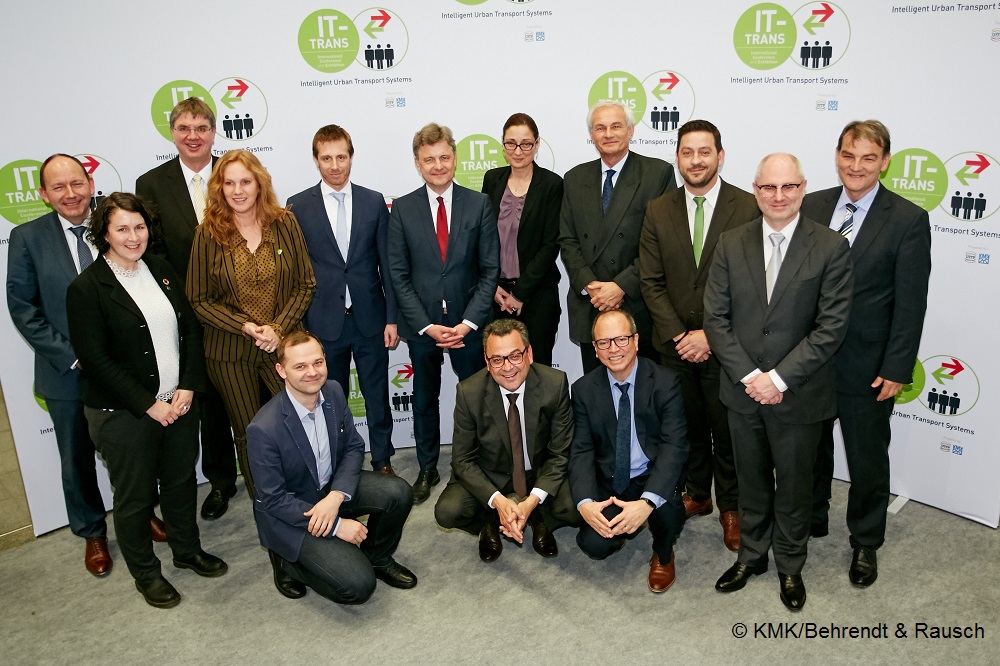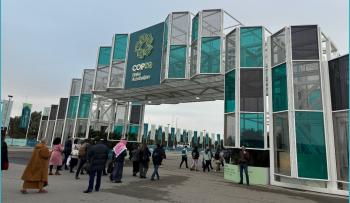
Shaping the future of urban mobility – ECF participates in Partnership for Urban Mobility political meeting
The Partnership for Urban Mobility held last week a high-level political discussion on the draft Urban Mobility Action Plan in Karlsruhe, Germany [1]. This draft plan has been developed over the past year with ECF participation as part of the Urban Agenda for the EU. ECF Secretary General, Dr Bernhard Ensink, participated at the meeting.
The Partnership for Urban Mobility (PUM) is one of 12 partnerships that form the Urban Agenda for the EU. The urban agenda is all about giving local authorities a stronger voice with the objective of unlocking better regulation, better funding and better knowledge exchange. ECF is a PUM stakeholder and together with the City of Gdynia leads on the development of the active mobility recommendations of the draft action plan. The three key items identified for discussion between the political representatives included funding for active mobility, multi-level governance and the future of public transport in the context of new mobility services.
The host of the meeting, Karlsruhe Lord Mayor Dr Frank Mentrup, illustrated how the cities’ cycling mode share increased from 16 % to 25 % in just 10 years, primarily by building cycling networks. As the EU is currently preparing the new Multiannual Financial Framework 2021 – 2027 (MFF), he called for stronger emphasis on providing funding for smaller EU projects in order to increase the number of active mobility projects.
Bernhard Ensink added to that:
We have set ourselves the target of unlocking 3 billion Euro for active modes in the next MFF, compared to 1.5 billion Euro in the period 2014 – 2020.”
The discussion touched also upon the excellent benefit-cost ratio of cycle projects. While acknowledged by several participants, Mätta Ivarsson, Chair of the Committee for Regional Development of the Swedish Skåne Region, put the finger on the sore spot: “While the investments primarily come from the local and regional level, the benefits are for the national healthcare system. These are different accounts.”
Hereby raising the need for multi-level governance, several participants expressed their satisfaction that within the Partnership representatives from all governmental levels – from urban to European – are treated at the same level. Christian Specht, 1st Mayor of Mannheim and Vice-Chair of Eurocities’ Mobility Forum, in particular felt very strongly about that. When the German Federal Government in 2017 called for the Diesel Summit, it was for the first time that there was a dialogue between the national and the local level. But these were unique circumstances and hardly a basis for a sustainable relationship, he said.
Adding to the discussion, Ensink reminded the other participants about the call for a European focal point for cycling made by the Declaration of Luxembourg on cycling as a climate friendly transport mode [2]. This Declaration was endorsed by transport ministers and state secretaries present at the informal Council meeting during the Luxembourg EU Presidency in 2015 dedicated solely to cycling. The purpose of such a European focal point is to coordinate all policies related to cycling across Commission DGs and with Member States.
Moving on to focus the discussion on new mobility services, Mohammed Mezghani, President of UITP (International Association of Public Transport) explained his new vision for public transport. “Public transport is not just mass transit, but it is also ride-hailing, car-sharing and bike-sharing”, he said. While participants welcomed this stance in principle, city representatives saw these new mobility services as not equal to mass transit but rather complementary to it. Specht argued that cities have to stay owner of the data these services generate: “Everyone is invited to operate within the city but under the cities regime. Uber etc. need to share the data on the city data platform'", he demanded.
ECF’s Secretary General held a plea for finding the right mix between letting innovation happen by disruptive technologies and in regulating these processes. “A common voice of public authorities is needed to manage it”, he argued.
To bring more voices into the debate on the future of urban mobility, the political meeting issued a call to all stakeholders to participate in the survey on the draft urban mobility action plan: https://ec.europa.eu/futurium/en/urban-mobility/draft-action-1-developing-guidelines-infrastructure-active-mobility-supported.
The survey is online until April 9.
Notes:
[1]URBAN AGENDA FOR THE EU, Partnership for Urban Mobility Final Draft Action Plan: https://ec.europa.eu/futurium/en/system/files/ged/pum_draft_action_plan.pdf
[2] Declaration on Cycling as a Climate Friendly Transport Mode, Luxembourg 2015: “Set up a European focal point for cycling (1) to serve as a one-stop-shop for cycling related questions, (2) to facilitate the exchange of best practices among Member States, notably on cyclists’ road safety, and (3) to monitor the implementation and the impact of the EU strategy for cycling.”
Contact the author
Recent news!
Upcoming events
Contact Us
Avenue des Arts, 7-8
Postal address: Rue de la Charité, 22
1210 Brussels, Belgium









